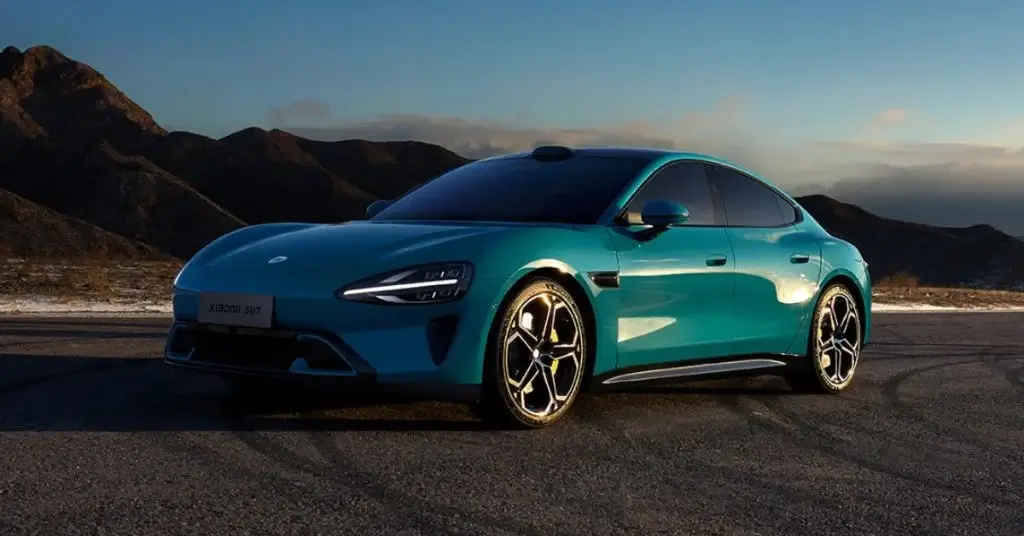In a significant move beyond its smartphone realm, Chinese tech giant Xiaomi has unveiled its inaugural electric vehicle, signaling its ambitious aspirations to climb the ranks as one of the globe’s top automakers.
Dubbed the SU7, where ‘SU’ abbreviates Speed Ultra, this sedan stands as a highly anticipated innovation boasting what CEO Lei Jun heralds as “super electric motor” technology. With claims of acceleration outpacing both Tesla’s cars and Porsche’s EVs, this launch introduces a promising contender into the electric vehicle arena.
Despite the backdrop of China’s saturated auto market facing a surplus in production capacity and a slowdown in consumer demand, Xiaomi’s CEO Lei Jun remains resolute in his vision. “Over the next 15 to 20 years, we aim to secure a position among the world’s top 5 automakers, driving the elevation of China’s automobile industry,” Lei emphasized during the unveiling, outlining the company’s lofty goals of crafting a vehicle that can rival the excellence of Porsche and Tesla.
What distinguishes the SU7 beyond its performance capabilities is its integration with Xiaomi’s ecosystem, offering seamless connectivity with the brand’s popular mobile apps and electronic devices. Leveraging its extensive consumer electronics background, Xiaomi aims to cater to a wide customer base, drawing on the loyalty of its massive ‘Mi Fans’ network.
Anticipated in multiple variants, the SU7 is set to offer driving ranges of up to 668 km (415 miles) and 800 km on a single charge, surpassing the range of Tesla’s Model S. However, pricing details are yet to be disclosed, with Lei hinting at a justifiable cost that aligns with the vehicle’s value proposition.
Moreover, Xiaomi strategically positions the SU7 to tackle challenges posed by winter conditions, ensuring fast-charging capabilities and advanced obstacle recognition technology, vital for navigating harsh weather scenarios.
While Lei’s ambitions for Xiaomi’s foray into the automotive industry failed to spark an immediate market surge, the company’s determination remains unwavering. Xiaomi’s pivot towards EVs mirrors a broader trend among Chinese tech giants, such as Huawei and Baidu, venturing into the electric vehicle sector amidst smartphone market saturation.
Having pledged a substantial $10 billion investment over a decade, Xiaomi stands as a rare newcomer in China’s EV landscape, having obtained approval from authorities to contribute to the market without exacerbating existing supply imbalances. Collaborating with a unit of state-owned automaker BAIC Group, Xiaomi’s cars are slated for production in a Beijing facility capable of manufacturing 200,000 vehicles annually.
Despite the highly competitive Chinese EV market dominated by players like BYD and Tesla, Xiaomi’s entry promises to challenge the status quo, introducing innovation and technology-driven solutions that could redefine the sector’s landscape.





